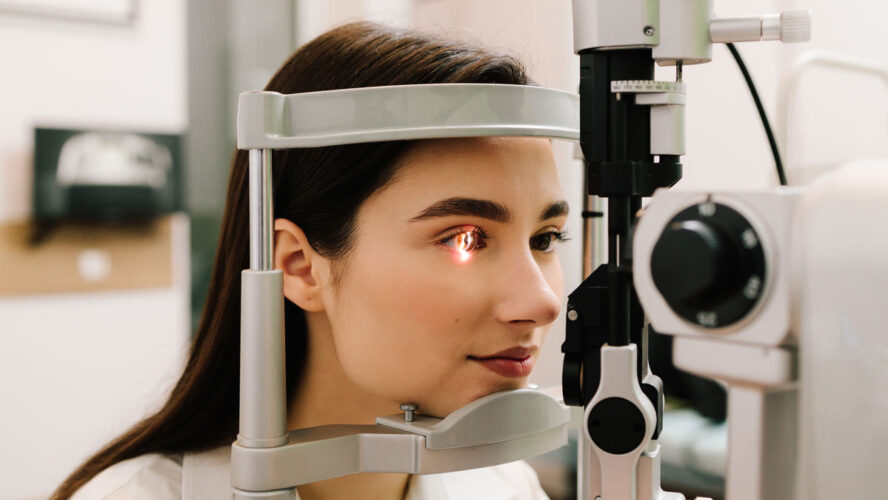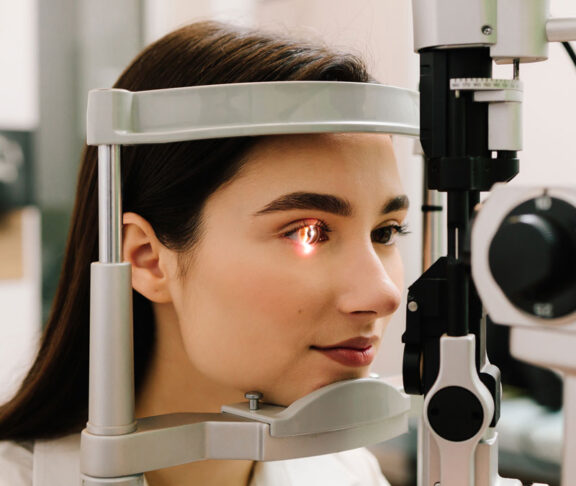
David Cartwright
Chair, Eye Health UK
Regular eye tests can help prevent avoidable sight loss and detect serious health conditions like dementia, diabetes and heart disease — helping you live healthier for longer.
Average life expectancy in the UK is 81 years. However, figures from the Office for National Statistics (ONS) reveal healthy life expectancy is just 62 years.1 Taking good care of your eyes could prevent ill health and help us all live well for longer.
Your eyesight doesn’t just affect how you cope with day-to-day tasks like driving or reading the news; there’s a strong link between vision and your mental and physical health, too. In fact, as many as one in five dementia cases are directly linked to eyesight issues.2
Eye tests are essential health checks
Poor eyesight is not inevitable. As much as half of all sight loss is actually avoidable.3 Regular eye tests are essential check-ups for everyone. They do more than simply test visual acuity; they detect eye disease early, helping to prevent future avoidable sight loss, and can spot markers for a host of serious health conditions, including cardiovascular disease, stroke, diabetes, hypertension and dementia.
Limiting screen time and spending
time outdoors are also important,
especially for children.
Poor health literacy is a barrier to testing
Yet, four in 10 of us fail to have our eyes checked regularly (once every two years).4 Lack of awareness about the role sight tests play in keeping us healthy is doubtless a driver for this low uptake.
Research conducted by Eye Health UK found just one in 10 know a sight test can detect conditions such as heart disease or Alzheimer’s, and worryingly, fewer than half (48%) realise optometrists (opticians) can diagnose age-related macular degeneration — the UK’s leading cause of blindness.
Life-saving optometrist referrals
Following a sight test, optometrists can direct people to get the help they need for a wide range of illnesses. This could be a potential life-saver for the 400,000 adults in the UK estimated to be living with undiagnosed heart failure and 88,000 people living with undetected brain tumours.5
Lifestyle matters
In addition to routine sight tests, adopting healthy lifestyle habits can also help keep your eyes healthy. This includes protecting your eyes from sun damage whenever UV levels rise to three or more, eating healthily and staying active. Limiting screen time and spending time outdoors are also important, especially for children.
This week is National Eye Health Week. Visit www.visionmatters.org.uk for more on looking after your eyes and why we should all be making regular sight tests part of our healthcare routines.
[1] Office for National Statistics (ONS), released 12 December 2024, ONS website, statistical bulletin, Healthy life expectancy in England and Wales: between 2011 to 2013 and 2021 to 2023
[2] https://jamanetwork.com/journals/jamaophthalmology
[3] Deloitte Access Economics (2017) Incidence and risk of sight loss and blindness in the UK Royal National Institute of Blind People.
[4] Eye Health UK.
[5] Heart Failure estimate = British Society for Heart Failure 2024. Source for Brain Tumour estimate The Brain Tumour Charity.


